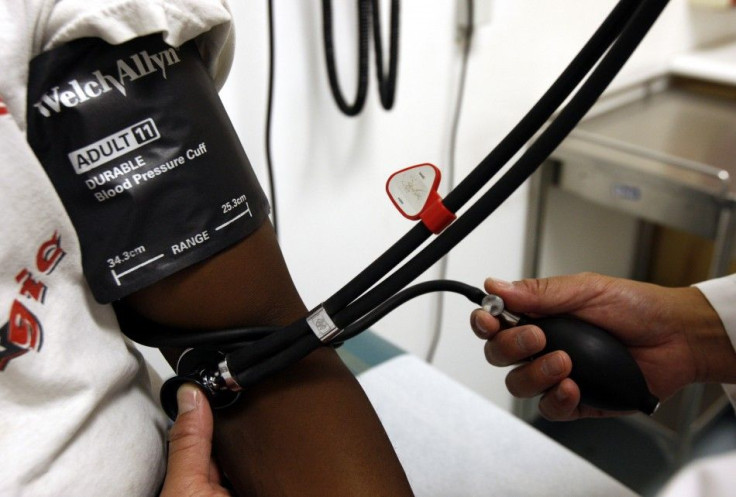Blood Pressure Differences In Arms Linked To Early Death

Next time a doctor takes your blood pressure, make sure both arms get measured. Patients whose blood pressure varies greatly between arms are at a higher risk of premature death, according to new research.
Clinical researchers linked increased risk of heart attack, stroke and other fatal conditions to large differences in blood pressure readings in 230 patients studied over 10 years.
National U.S. and U.K. guidelines mandate that health workers measure blood pressure in both arms, but many don't that could prove to be a fatal mistake, according to the study.
Sorry guys, but you really need to follow the guidelines by measuring both arms when you're assessing blood pressure, Dr. Christopher Clark, study author and clinical research fellow at the Peninsula College of Medicine and Dentistry in England, told the BBC.
Blood pressure is measured as the pressure it takes to rise a column of mercury, otherwise known as millimeters of mercury (mmHg). Researchers found that for every one mmHg difference between arms, patients were 9 percent more likely to die over the next 10 years. The average blood pressure is less than 120/80 mmHg, according to the National Heart Lung and Blood Institute.
Although a difference of a few points is normal, a difference of more than 10 points could suggest trouble and alert the physician to intensify treatment strategies for preventing a heart attack or stroke, Dr. Kevin Marzo, chief of cardiology at Winthrop-University Hospital, who was not involved in the study, told HealthDay. The 'vital' signs should include blood pressure in both arms -- a screening test that adds no cost, little time and potentially [could be] so critical to initiating lifesaving treatment.
A large blood-pressure difference between arms could indicate peripheral vascular disease, an obstruction of the arteries that increases the risk of heart disease, stroke and heart attack that is often asymptomatic, the authors wrote.
In an editorial accompanying the study, Dr. Dae Hyun Kim, a gerontology fellow at Harvard Medical School, said doctors should use the arm with the higher reading to determine the necessary treatment.
The British Medical Journal published the study on Tuesday.
Clark published a similar study in the January issue of The Lancet. Researchers looked at 20 studies and found a blood pressure difference of 15 mmHg or more put patients at a risk of heart attack or stroke similar to patients with pre-existing heart conditions.
© Copyright IBTimes 2025. All rights reserved.





















